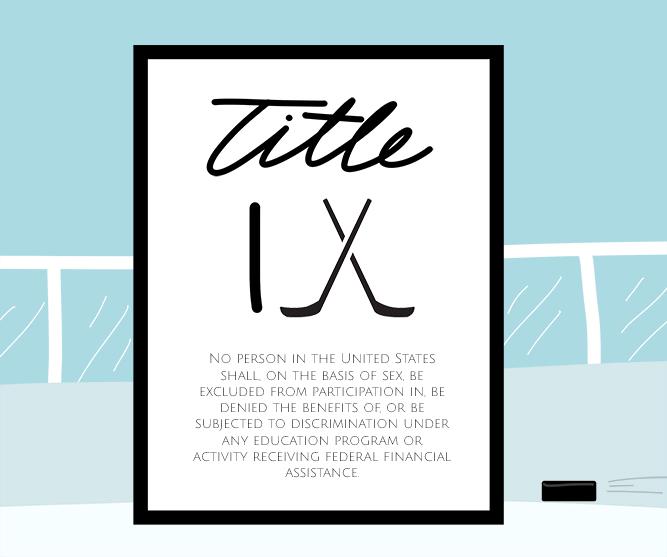The Evolution of Title IX in Sports
February 12, 2018
Since the enactment of Title IX in 1972 by the U.S. Department of Education Office for Civil Rights, academic institutions have increasingly set forth efforts and policies to promote gender equality for all students, staff and faculty who participate in academic programs and activities.
In recent years, increased attention and scrutiny has been placed on Title IX in respect to collegiate athletics on the grounds of gender equality, specifically the lack of resources and opportunities for female athletes as compared to those available to their male counterparts.
The OCR states that “no person in the United States shall, on the basis of sex, be excluded from participation in, be denied the benefits of, or be subjected to discrimination under any education program or activity receiving Federal financial assistance.”
NYU is an affirmative action and equal opportunity institution that heavily enforces Title IX. The university’s Office of Equal Opportunity provides members of the NYU community with resources to understand the policy and assists in the filing and resolution of sexual misconduct and discrimination complaints.
The OEO serves to “promote and support the university’s commitment to creating and fostering an inclusive and diverse community of faculty, administrators, staff and students” through a “consistent and uniform procedure for responding to and resolving internal discrimination complaints,” according to the office’s mission statement.
Beyond the legislation of Title IX, progress made in the professional ranks by female athletes and organizations has sparked a top-down movement to lessen the inequality that exists between the treatment of male and female athletes.
The U.S. Women’s Hockey Team has been a seminal leader in the fight for equality. In the spring of 2017 the team ended a 15-month negotiation with USA Hockey over compensation disputes. The two sides were able to come to an agreement after the team threatened to boycott the World Hockey Championship.
Jocelyne Lamoureux-Davidson, a forward on the U.S. national hockey team, highlighted the greater influence the team’s win will have on younger female athletes in regards to equal opportunities that make the sport more accessible.
“We just feel like there’s also going to be a trickle-down effect,” Lamoureux-Davidson said in an interview with Time. “It’s going to impact the younger generation. We’re going to have more publicity and more marketing, which is a piece to the puzzle. We’re very excited moving forward.”
The trickle-down effect projected by Lamoureux-Davidson has been evident at the collegiate level over the past year as numerous athletic programs, most notably Michigan State University and the Larry Nassar case, have increased efforts to ensure Title IX compliance by their athletic programs.
CAS freshman and goaltender on the NYU hockey team Aidan Levi-Minzi thinks NYU is adequately upholding the values of Title IX.
“If you go on any major university’s athletic site, you’ll see that there are almost always a larger group of men’s sports than women’s,” Levi-Minzi said. “Again, there could be an argument for the economic benefit of having a major football team, but it’s time for universities to look past the money and actually do what they were supposed to do: educate kids. And I think NYU does that, not only by being a top university, but by having an equal opportunity for both men and women to play a sport.”
Those looking to further educate themselves on Title IX policies at NYU should visit the OEO website for office hours, location and contact information.
A version of this article appeared in the Monday, Feb. 12 print edition. Email Warner Radliff at [email protected].
























































































































































